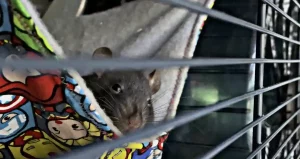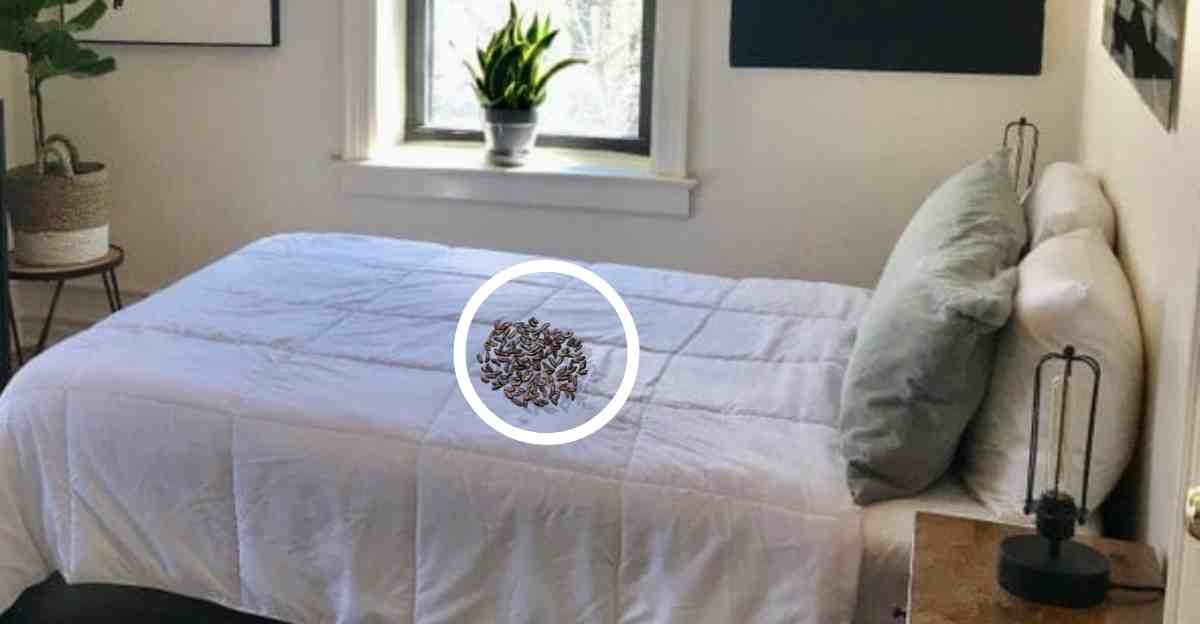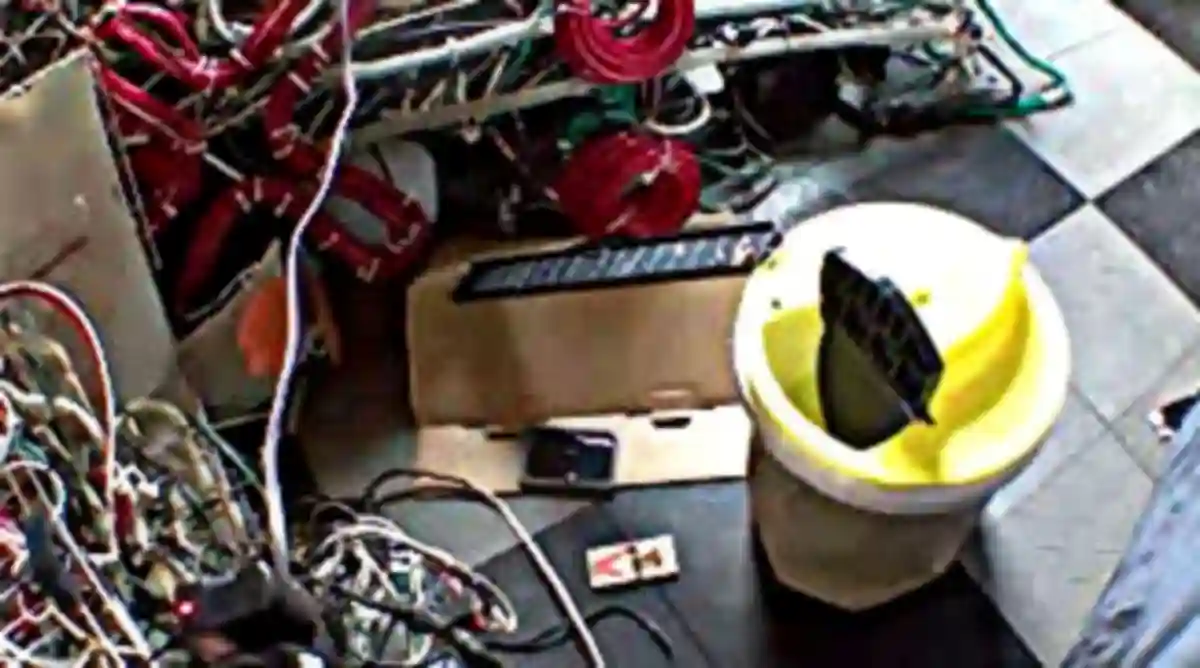Rat infestations outside in your yard are not uncommon and can cause damage to your fruits, vegetables, compost, and soil if you have a garden. While poisons may seem like quick solutions, they can pose risks to children, pets, and native wildlife. As such, it is best to get rid of rats outside without poison to safeguard non-target species while still ensuring a long-term solution.
How to get rid of rats outside without poison

Below are effective approaches to permanently get rid of rats outside without poison:
1. Apply peppermint oil
Peppermint oil is a potent deterrent for rats due to its strong scent and can effectively drive rats away from your yard or garden. Take some cotton balls and moisten them with 100% pure peppermint oil, then strategically place them in different areas of your garden, including the garage and shed.
For optimal results, reapply the oil a couple of times a week to maintain the strong scent and discourage rats from returning.
2. Use catnip
Obtain catnip from a garden center and plant it in various locations throughout your garden to deter rats outside. When selecting the planting spots, look out for signs of rat activity such as nests and pellet droppings to help you determine the best spots.
3. Eliminate food and water sources
The rats outside your home are attracted to food and water sources in the first place, so take measures to minimize their accessibility.
Check for dripping taps and fix any leaks in your yard to eliminate water sources. Avoid using a bird bath, as it can attract rodents. When it’s night, remove pet food or water bowls to eliminate potential feeding opportunities for rats. If you have a composting system, ensure it is secure and bury organic materials deep within the bin to discourage rats.
Keep bin lids tightly closed to prevent rats from accessing garbage, and avoid leaving garbage bags outside for extended periods.
4. Keep your garden clean
You can generally get rid of rats outside without poison by maintaining cleanliness and tidiness. According to King County, Washington, to keep rats away, stack firewood 18 inches off the ground and away from all buildings and move your woodpile at least twice a year. Other methods to consider are:
- Regularly pick up fallen fruit, berries, and vegetables, as these can attract rats due to their food source.
- Cut back overgrown areas, as dense vegetation can create hiding places for rats.
5. Use soil netting technique
A useful technique to get rid of rats outside without poison is to place a piece of netting just below the soil surface. The netting acts as a barrier, preventing rats from burrowing into the garden and damaging roots and bulbs. However, determined rats may attempt to chew through the netting, so regular monitoring is necessary.
When you keep an eye out for any signs of damage or breaches in the netting, quickly address any potential vulnerabilities for effective protection.
6. Caulk up cracks and gaps
Fix any gaps or cracks in the external walls. Use a suitable sealant to effectively block these openings, ensuring that there are no accessible entry points for rats. Seal off these nooks and crannies to create a barrier that gets rid of rats outside without poison. Regularly inspect your home’s exterior and promptly seal any potential entry points to maintain a rat-free environment.
7. Use smoke bombs in open spaces
If you come across rat burrows in your backyard, it might be worth it to use a smoke bomb. Rat burrows are characterized by loose soil and an angled hole. However, just don’t smoke-bomb next to your walls to avoid creating new cracks that establish entry holes for both rodents and insects like cockroaches.
Smoke bombs should not also be used if the burrow is located near a tree, porch, or any other flammable structure. In such cases, alternative methods should be employed to address the rat infestation effectively and safely.
8. Get rid of rats with dry ice
When dealing with burrows located near porches or urban areas, consider using dry ice. Dry ice releases carbon dioxide gas as it melts and has an anesthetic effect on rats, ultimately leading to their death. Moreover, this method is considered humane, quick, and highly effective.
Note that dry ice should not be used in tightly enclosed spaces where humans or pets reside due to the release of CO2 gas. Also, use heavy gloves when handling dry ice, as it can cause skin damage due to its extremely cold temperature.
9. Police your own yard
Rats are driven by their need for food. Therefore, controlling the food sources in your yard is necessary to get rid of them outside without poison. Experts believe that the real issue lies with humans rather than rats themselves. As long as you continue to provide them with a readily available food source, shelter, and water, you will struggle to reduce the rat population.
Also, you can prevent rats from accessing your garden beds by keeping them raised. Make sure you promptly pick ripe fruits and vegetables to avoid attracting rats.
When it comes to bird feeders, keep them elevated at least 48 inches off the ground and install a baffle on the pole to prevent rats from reaching them. Use food blocks instead of scattering seeds and opt for pre-hulled seeds to deter rats. The whole idea is for you to take responsibility for maintaining your own yard.
10. Use onions
Rats have an aversion to the strong smell of onions, making them an effective deterrent. However, onions rot quickly and can be toxic to pets. You would need to replace the onion every second day with a fresh one to maintain its potency as a rat repellent.
11. Apply hot pepper flakes
Using pepper as a natural repellent is a cost-effective method to deter vermin outside. Sprinkling pepper along entryways and corners can help create a barrier that rodents find unpleasant. The strong scent and taste of pepper discourage them from approaching those areas, effectively getting rid of rats outside without poison.
However, the effectiveness of hot pepper flakes may vary. For severe rat infestations outside or long-term prevention, it’s advisable to consider additional pest control measures or consult with professionals.
12. Homemade garlic can deter rats outside
Create your own homemade anti-rat solution by combining chopped garlic with water. This mixture can be sprayed or applied to areas where rats are likely to enter.
Place garlic cloves at entry points of your home to act as a deterrent. The strong odor of garlic is known to repel rats and discourage them from entering your living space.
13. Cloves oil or cloves can prevent rats
Rats have an aversion to cloves. To keep them away, you can gather a bunch of cloves and place them in pantyhose or muslin cloth. Position this near any rat holes or areas where rats are known to frequent. The strong scent of cloves can act as a natural deterrent, helping to repel rats from your home or garden.
14. Use ammonia scent
Rats are known to dislike strong odors, making ammonia a potential deterrent. Pour ammonia into small bowls and strategically place them near the areas where rats are commonly found or along their favorite paths. The strong smell of ammonia may discourage rats from approaching those areas, helping to keep them away. However, exercise caution when handling ammonia, as it can be harmful if ingested or if it comes into contact with skin or eyes. Additionally, remember to keep ammonia out of reach of children and pets to ensure their safety.
15. Set humane traps
As a fallback alternative to poison, you can get rid of rats outside without poison by setting up traps. Consider humane traps such as bucket traps for rats.
Depending on your infestation situation, you might want to use snap traps, which provide a quick kill. However, for the safety of other animals such as hedgehogs, raccoons, and cats, place the traps inside a box or under a milk crate. You can use peanut butter as bait, as it is affordable, aromatic, and highly appealing to rats. Nevertheless, experts generally advise experimenting to find what bait works best for their specific yards. For instance, if rats are attracted to a mulberry tree, fruit jelly might be a more effective option. Follow these steps to dispose of caught rats.
Conclusion
Above are poison alternatives to catching rats outside your home. Even non-live traps such as snap traps can be as risky as poison if a non-target wildlife or pet gets into it. Decide your non-poison rat deterrent carefully to permanently keep them away from your yard and garden.
If you have difficulty resolving the rat issue, contact your local pest control to professionally and permanently keep rats away. Remember that if you allow the rats outside to be too comfortable, they will end up entering your home.






